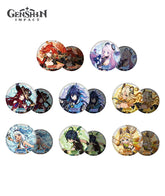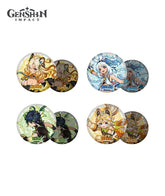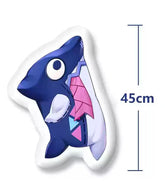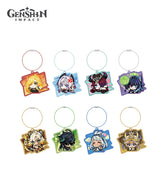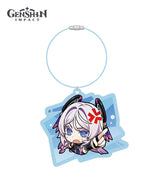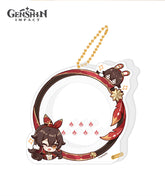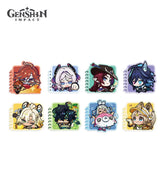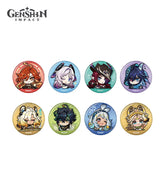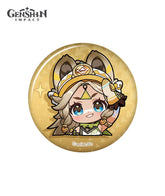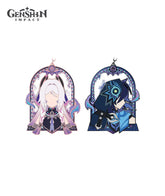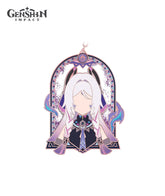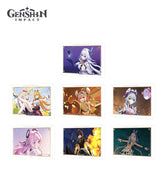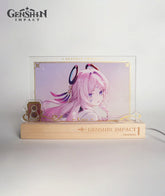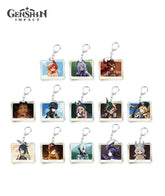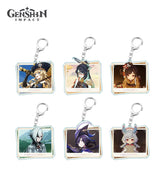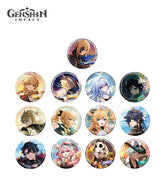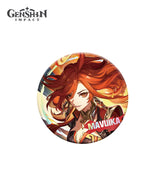Genshin Mavuika & Citlali: Constellation Etymology
Mavuika & Citlali, two popular characters in Genshin and. Beyond their intriguing personalities and backstories, even their Constellations hold profound etymological depth. Want to uncover the origins of their Constellation names? Let's dive in!
1. Mavuika's Constellation Etymology
Mavuika's Constellation exudes grandeur, titled Sol Invictus-Latin for "Unconquered Sun" or "Invincible Sun".

Interestingly, the late Roman Empire's official sun god also bore this name (Sol Invictus). Revered by the Roman elite since Emperor Aurelian's reign, depictions of Sol Invictus adorned imperial coins until Constantine I established Christianity as the state religion. Mavuika's Constellation sharing this name is likely coincidental, deriving solely from its literal meaning.

Even Mona's mentor, the Witch "B," praised Mavuika: "Amidst the intricate tapestry of Teyvat's night sky, such a blinding constellation is rare. Its searing glare seems determined to scorch a hole through the celestial veil. When it plummets as a meteor toward the horizon, its flames shall ignite even the darkest nights into dawn."
True to her title as Grand Astrologist, Version 5.1's story showed Mavuika becoming a sun to illuminate darkness-cloaked lands-literally "burning a hole in the sky." But what does "plummeting as a meteor" imply? Thankfully, Genshin hasn't yet put deceased characters in banners.
Notably, Mavuika becomes the second character with dual voice-over entries. Varka-Mondstadt's perennially "expeditioning" Knights of Favonius Grand Master and our oldest unreleased character-shared his drinking defeat by Mavuika with Alice. With the Traveler's Natlan voice-overs now referencing Varka (dubbed a "drunkard uncle" by Paimon), could his debut be imminent?
2. Citlali's Constellation Etymology
Citlali's Constellation Patina Anavatlaca carries a more intricate etymological context.

The term Patina derives from the Latin patĭna ("shallow dish"), referring to oxidation layers on metals like copper or bronze ("verdigris") or aged textures on stone/wood. Symbolically, it denotes fading or weathering.
The intriguing Anavatlaca likely stems from Nahuatl (Aztec language), adapted to Latinized conventions. Its composition suggests Anāhuac ("land by waters") + -tlacatl ("person"), morphing into Anavatlaca through phonetic blending.
The suffix -tlacatl denotes "person" in Nahuatl, while Anahuatl refers to an obsidian pectoral disc worn by the Aztecs-essentially a "heart-protecting mirror." This aligns with Citlali's Constellation name "Stone-Heart Mirror."

This ornament is linked to Tezcatlipoca, whose lore parallels the "Lord of Smoke and Mirrors." The title Yoalli Ehēcatl (Night Wind) reflects the deity's association with impermanence, symbolized by night winds representing his omnipresence. The Masters of the Night-Wind's homeland, the Tezcatepetonco Range, also references his "Smoking Mirror" epithet.
Thus, the full Constellation name translates to "Ancient Obsidian Heart-Mirror Bearer," embodying Citlali's role as the Masters of the Night-Wind's High Shaman-a guardian shielding her tribe like an obsidian pectoral.
That's all for today's dive into their Constellations! What do you think after learning about their etymology? Whose Constellation lore resonates more with you? Stay tuned to our site for future articles and official merchandise!

















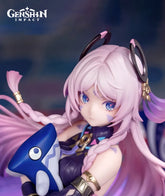
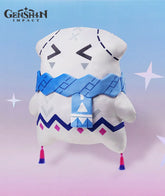



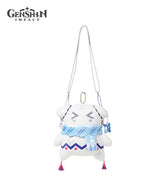



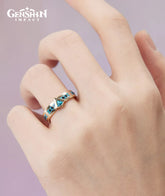



![[Official Merchandise] Genshin Impact Flames and Mountains Citlali Impression T-shirt](http://genshinfans.com/cdn/shop/files/ZT01_4fd2c166-c1bd-4b78-b8a9-d9e87c296d7e_165x.jpg?v=1749786163)
![[Official Merchandise] Genshin Impact Flames and Mountains Citlali Impression T-shirt](http://genshinfans.com/cdn/shop/files/ZT02_9ffca886-5c94-4b55-8835-55b1a2a0fa33_165x.jpg?v=1749786163)
